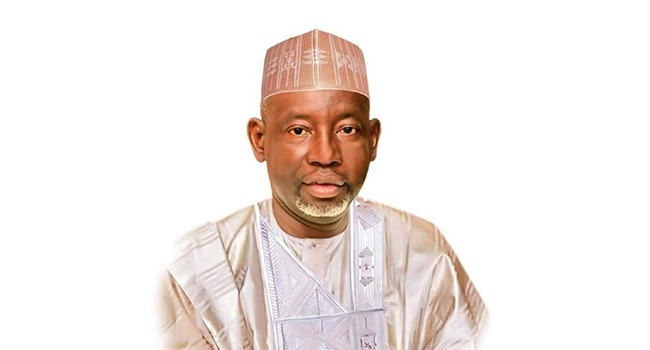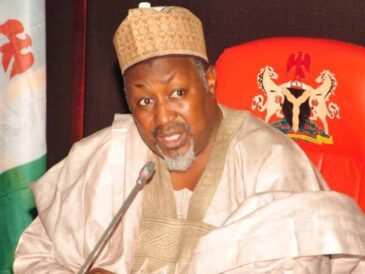*Gov Umar Namadi
Tragedy has once again struck the family of Jigawa State Governor, Umar Namadi, following the death of his eldest son, Abdulwahab Umar Namadi, in a fatal car accident.
The incident occurred barely 24 hours after the governor lost his mother, Hajiya Maryam Namadi.
According to eyewitness accounts, Abdulwahab was returning from Kafin Hausa to Dutse with his friends when the vehicle he was driving lost control, causing it to somersault. While his friends sustained various degrees of injuries and are currently receiving treatment at Dutse General Hospital, Abdulwahab was pronounced dead at the scene.
A close family source, who spoke on condition of anonymity, described the incident as a “double tragedy that has deeply shaken the family.”
“The governor is still mourning the loss of his mother, and now this. It is a very difficult time for the family,” the source said.
Governor Namadi, who was seen at the funeral in Kafin Hausa, expressed his grief but called for prayers and patience.
“It is Allah’s will, and we cannot question it. I urge everyone to remember us in their prayers during this challenging period,” the governor said during a brief address after the burial.
Residents of Dutse and Kafin Hausa have been trooping to the governor’s residence to offer their condolences.
A family friend, Alhaji Musa Ibrahim, described Abdulwahab as a “humble and responsible young man with a promising future.”
“He was well-loved by many and always showed respect to elders. This is a huge loss not just for the family but for the entire state,” Ibrahim added.
Meanwhile, hospital officials have confirmed that Abdulwahab’s friends are responding to treatment and remain in stable condition.
Jigawa State Information Commissioner, Malam Sagir Musa, released a statement expressing the government’s condolences.
“We mourn with His Excellency and his family. This is indeed a painful moment for all of us in Jigawa State. May Allah grant the deceased Aljannah Firdaus,” the statement read.
Funeral prayers for the late Abdulwahab were held at the Kafin Hausa Central Mosque, attended by top government officials, traditional rulers, and community leaders.///





